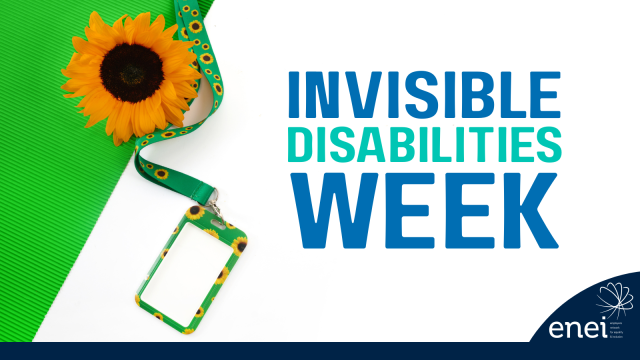Drawing on both lived experience and professional insight, enei D&i Lead Hugh O'Keeffe offers a practical and compassionate guide to moving past fear and towards proactive, inclusive dialogue in the workplace. It all begins with one essential step: having the right kind of conversation.

As I prepare to chair the upcoming Supporting Disabled People in the Workplace Conference, I’ve been reflecting a lot on a question that I frequently encounter from managers and leaders: “How can I better support disabled employees?” This question shows a genuine desire to move from reactive to proactive support for disabled people. I notice that the question is often asked with a palpable sense of anxiety.
The good news for those who share in this anxiety is that the single most important skill you need isn’t a medical degree or an encyclopaedic knowledge of every condition. It’s the ability to have proactive, compassionate, and open conversations about a person’s needs.
So why does that feel so difficult for so many?
Overcoming the Fear of Saying the Wrong Thing
The biggest barrier is often fear. Fear of offending, of misspeaking, of getting ‘cancelled’. This anxiety can be so powerful that it leads to silence, and in that silence, disabled employees are left without support. This isn’t a niche issue. With disabled people making up nearly a quarter of the UK population, silence means a huge portion of your workforce is potentially being overlooked.
The first step is to reframe the goal. You don’t have to be perfect. You will make mistakes. The crucial part is what you do next: how you listen, learn, apologise, and commit to doing better. When you accept that you’re not supposed to be an expert on someone else’s life, it takes the pressure off. It allows you to stop performing a process and start having a human conversation.
How to Start the Conversation
So, how do you open that door? Crucially, you should be having these kinds of check-ins with everyone on your team, not just those with visible disabilities. Remember that an estimated 70-80% of disabled people in the UK have a non-visible disability. This proactive approach normalises the conversation and creates a culture where everyone feels safe to share their needs.
Try asking open, empowering questions like:
- “What can we do to support you to thrive here?”
- “Thinking about what helps you manage your long-term health condition or disability at home, are there any things you feel might help you here at work?”
When an employee shares their needs, your response is crucial. Acknowledge the courage it takes to be open. Be clear about the process for arranging support, including who will be informed (always with the employee’s consent). Be realistic about timeframes—overpromising and underdelivering can be a death sentence for trust. If a specific adjustment isn’t feasible, don’t just say no. Offer alternatives and work with the employee to find a solution.
From Accommodation to Belonging
Getting this right isn’t just a ‘nice to have’; it’s a legal responsibility and a business imperative. Inclusive organisations attract more talent, have lower staff turnover, and benefit from more productive, open teams.
But beyond the business case, this is about creating a culture of true belonging. It’s the difference between an employee simply being ‘accommodated’ and one who feels genuinely supported. It’s the difference between someone having to hide or mask their symptoms and someone who can bring their whole self to work.
I can speak to this from my own lived experience. As someone with a progressive, non-visible disability, I am keenly aware of what it feels like to navigate these conversations. I have the immense privilege of working at Onvero, where talking openly about my disability is part of my role. That environment of psychological safety allows me to thrive, not just as an employee, but as a person. That is the feeling we should be striving to create for every single employee.
It all starts with a conversation. Let’s get talking.
This blog was written by Hugh O’Keeffe, Diversity and Inclusion Lead at Onvero, and posted on 11 August 2025.
Upcoming event
Invisible Disabilities Week: Making Hidden Disabilities Part of the Conversation
Non-visible disabilities affect many people, yet they are often overlooked in conversations about workplace inclusion. In this session, Hugh, our Diversity and Inclusion Lead, will share his own experiences to help raise awareness and encourage open discussion.


